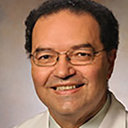The surgical management of achalasia in the morbid obese patient.
Mots clés
Abstrait
BACKGROUND
Morbid obesity and achalasia may coexist in the same patient. The surgical management of the morbidly obese patient with achalasia is complex, and the most effective treatment still remains controversial. The goal of our report is to provide our evidence-based approach for the surgical management of the patient with achalasia and morbid obesity.
RESULTS
Three main surgical approaches have been used for the concomitant treatment of morbid obesity and achalasia: 1) a laparoscopic Heller myotomy and a laparoscopic Roux-en-Y gastric bypass (LRYGB); 2) a laparoscopic Heller myotomy with bilio-pancreatic diversion; and 3) a laparoscopic Heller myotomy with a sleeve gastrectomy. Our approach of choice is the first one discussed, that is the laparoscopic Heller myotomy with a LRYGB, as this approach can provide excellent relief of symptoms and control of reflux while at the same time treating obesity and its comorbidities.
CONCLUSIONS
Achalasia and obesity can coexist, albeit infrequently. A laparoscopic Heller myotomy with a LRYGB allows the simultaneous treatment of both diseases. When a morbidly obese patient with achalasia chooses to have a myotomy alone and not a LRYGB, a thorough discussion of the risks and benefits should occur and the autonomy of the patient's decision-making should be respected.


